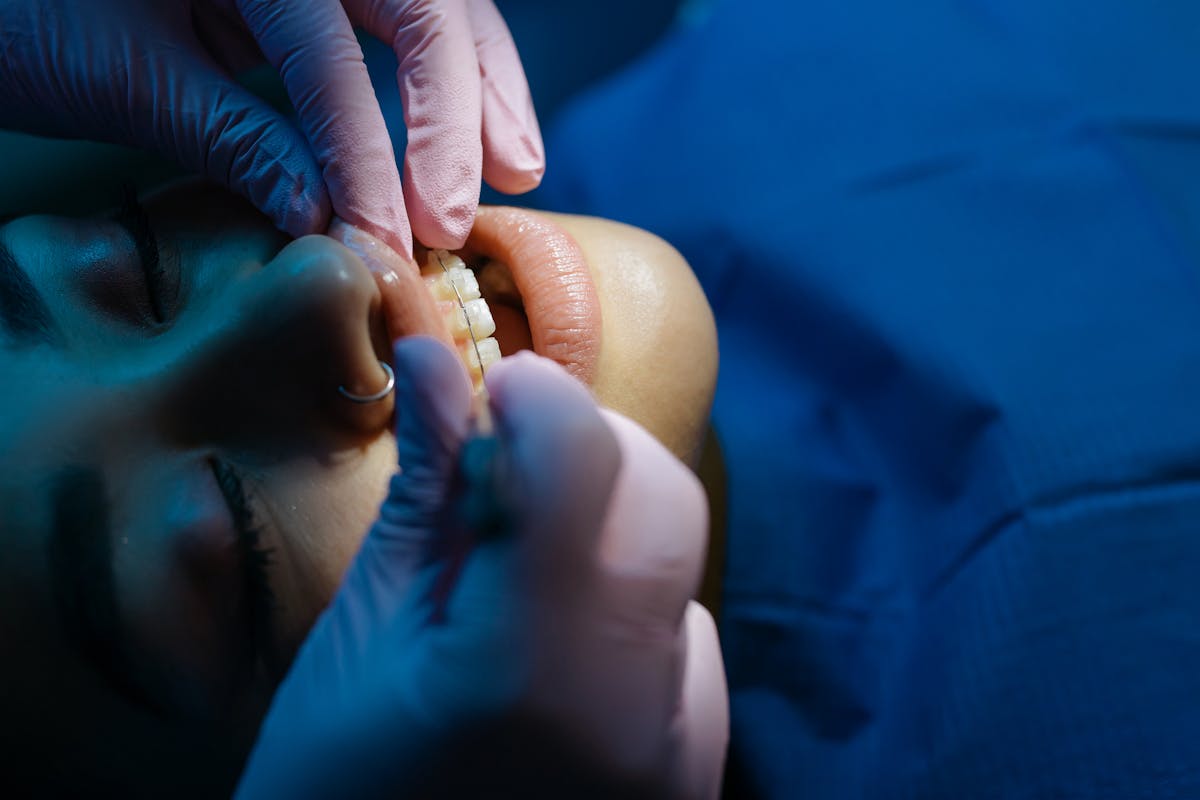Bone loss is a common problem after you’ve lost one or more teeth. Over time, the bone structure beneath your missing teeth begins to weaken and deteriorate. Gum disease, periodontal disease, and dental trauma are other leading causes that can cause you to suffer bone loss.
If you’ve experienced significant bone loss and are wondering if you can still receive dental implants in Jacksonvile, the answer is “yes!” Even with reduced bone density, Dr. Charles Poblenz at JAX Dental Studio offers advanced implant dentistry solutions to help you restore your smile.
Why Does Bone Loss Affect the Dental Implant Procedure?
Bone loss around the implant site affects the procedure because implants need to be surgically anchored into your own bone. Without sufficient bone structure, there’s an increased risk of implant instability and failure.
This is why a detailed implant consultation is crucial. With digital x-rays, Dr. Charles Poblenz will evaluate your bone cells, examine the extent of lost bone, and determine if additional surgical procedures are needed to support the implant.
Even with severe bone loss, modern techniques make it possible to move forward. Many patients undergo bone grafting to rebuild healthy bone where it’s been lost. As long as your mouth is otherwise healthy and free of conditions like gum disease, you may still qualify for dental implants.
Bone Grafts Can Help Rebuild Bone for Dental Implants
During a bone graft, Dr. Poblenz places biocompatible material into the affected area to promote regrowth. Over time, your body replaces this material with bone cells, creating a stable base. This approach is essential for restoring the upper jaw and other areas affected by bone loss around previous extractions or injuries.
After healing, this regrown bone can support traditional dental implants, allowing for a secure and lasting result. If you don’t have enough bone to begin with, grafting provides the foundation needed to move forward safely.
Can You Avoid Bone Grafts?
The best way to avoid bone grafting is to get implants quickly after tooth loss. Bone deterioration begins soon after a tooth is lost, and you may lose up to 25% of the surrounding bone volume within a year.
Timely implant placement helps maintain bone structure and prevents further deterioration. Unlike dentures or bridges, implants stimulate the jaw, preserving your natural anatomy. If you’ve maintained proper oral hygiene, and your gum tissue is in good condition, you might not need grafting at all.
What If You’ve Already Experienced Bone Loss?
If you’ve already experienced severe bone loss, you’re not out of options. Advanced procedures like sinus lifts and ridge augmentations are available to support traditional implants, even in complex cases. These approaches help rebuild a stable base and make treating bone loss a possibility rather than a barrier.
By addressing issues early and maintaining good oral habits, such as avoiding poor oral hygiene, you can increase your chances of successful implant outcomes.
Restore Your Smile at JAX Dental Studio
If you’ve experienced bone loss, that doesn’t mean you have to give up on dental implants. At JAX Dental Studio, we offer advanced implant solutions, including bone grafts and full arch restorations, tailored to your needs. Dr. Charles Poblenz uses modern tools like the iTero 5D digital scanner and soft tissue laser to ensure precise, comfortable care at every step.
Our commitment to open, honest communication means you’ll always know your options, and we’ll help guide you toward the best solution for your oral health. Whether you’ve dealt with gum disease, tooth loss, or a weakened bone structure, we’re here to help you smile confidently again. Call us at (904) 396-4091 or contact us online.
Frequently Asked Questions
Can I get dental implants if I have severe jawbone loss?
Yes, even with severe jawbone loss, many patients can still receive dental implants. An oral surgeon may recommend a bone graft to rebuild bone tissue using synthetic or donor bone material. This helps create a stable foundation for the implant, improving both success rates and long-term function.
How does bone health impact the risk of implant failure?
Poor bone health—due to conditions like osteoporosis, untreated gum disease, or aging—can significantly increase the risk of implant failure. A strong and healthy jaw bone is essential for supporting dental implants, so evaluating and improving your bone quality is often a key first step in the implant process.
What role does bone growth play in successful dental implants?
After an implant is placed, your body must stimulate bone growth around it in a process called osseointegration. This allows the implant to fuse with your jaw bone, providing stability similar to natural teeth. Without proper bone growth, the implant may loosen or fail over time.
Can dental implants help preserve bone tissue after tooth loss?
Absolutely. Unlike other tooth replacement options like bridges or dentures, dental implants actively stimulate your bone tissue, much like natural teeth do. This stimulation helps maintain bone material and prevents deterioration of the jaw bone, which is common after tooth replacement is delayed.
Who should I see if I’ve already lost a lot of bone material?
If you’ve lost significant bone material, it’s important to consult with an experienced oral surgeon. They can assess your current bone health, recommend grafting procedures if needed, and develop a personalized plan to reduce the risk of implant failure and restore your smile with a stable implant foundation.
What is a bone graft and how does it make dental implants possible with bone loss?
A bone graft is a surgical procedure where Dr. Poblenz places biocompatible material into areas of your jaw that have experienced bone loss, creating a stable foundation for dental implants. The grafting material can be synthetic, donor bone, or your own bone taken from another area. Over time—typically 3-6 months—your body replaces this material with new bone cells through natural healing processes, rebuilding the bone structure needed to support an implant. This procedure is especially important for the upper jaw and areas affected by tooth extractions or injuries. After the graft fully heals and integrates with your existing bone, you’ll have sufficient bone density and height to safely anchor traditional dental implants. At JAX Dental Studio, we use advanced digital imaging like the iTero 5D scanner to evaluate your bone structure and determine if bone grafting is necessary before proceeding with implant placement.
How quickly does bone loss occur after tooth extraction, and why does timing matter?
Bone deterioration begins almost immediately after tooth loss, and you can lose up to 25% of your surrounding bone volume within just the first year. This happens because your jawbone needs stimulation from tooth roots to maintain its density—when a tooth is missing, the bone in that area stops receiving pressure from chewing and begins to resorb or shrink away. The longer you wait to replace a missing tooth, the more severe the bone loss becomes, which can eventually require more extensive bone grafting procedures before implants can be placed. This is why Dr. Poblenz recommends getting dental implants as soon as possible after tooth loss. Early implant placement not only helps you avoid bone grafting altogether but also provides immediate stimulation to preserve your remaining bone structure. Dental implants are unique because they replace the entire tooth including the root, preventing future bone loss and maintaining your facial structure and oral health.
Can I still get dental implants if I have severe bone loss or osteoporosis?
Yes, even with severe jawbone loss or conditions like osteoporosis that affect bone health, many patients can still receive dental implants at JAX Dental Studio. Poor bone quality does increase the risk of implant failure, which is why a thorough evaluation is crucial before treatment. Dr. Poblenz will take digital x-rays to examine your bone cells, assess the extent of bone loss, and evaluate your overall oral health including checking for gum disease. For patients with significant bone loss, advanced techniques like bone grafting can rebuild the necessary bone structure to support implants. In some cases, alternative implant options such as mini dental implants or All-on-4 implants may be recommended as they require less bone density. The key to success is addressing any underlying conditions, maintaining good oral hygiene, and following a customized treatment plan. Schedule a consultation to discuss your specific situation—even if other dentists have told you that you’re not a candidate, modern implant dentistry offers solutions for most cases of bone loss.


